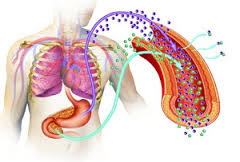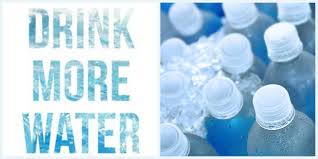A buildup of eye fluid can cause eye pressure, which can be an extremely uncomfortable situation. In some cases, this buildup of fluid indicates the start of a disease called glaucoma, which deteriorates nerve fibers of the eye. If left untreated, glaucoma can lead to blindness. It is therefore important to understand how to reduce pressure and lower your risk of dealing with complications.
How to Reduce Eye Pressure with Lifestyle Tips
Not only does eye pressure make you feel uncomfortable all the time, it also increases your risk of vision loss. A change in your eating habits and lifestyle can make your condition more manageable.
1. Lower Insulin Levels

People with conditions such as diabetes, obesity, and hypertension become resistant to insulin. Insulin resistance pushes your body to produce more insulin, which in turn can increase eye pressure. It is therefore a good idea to avoid foods that cause abrupt increase in insulin levels. Some common foods to avoid are grains, sugar, pasta, breads, cereal, rice, and potatoes.
2. Exercise Regularly

Regular exercise helps lower your insulin levels and protect your eyes from ocular hypertension. You do not have to work very hard – anything like jogging, aerobics, biking, and brisk walking will work just fine. You just need to ensure that you exercise for at least half an hour a day, 3-5 days a week. Avoid engaging in exercises that make you go in a head-down position – this can increase intraocular pressure and cause complications.
3. Increase Intake of Omega-3s

Omega-3s are important for your health, especially the DHA that improves retinal function and prevents ocular pressure. Include cold-water fish in your diet – some good examples are sardines, tuna, herring, and shellfish. Eating at least two servings of these fish will help boost your DHA levels. You can also take fish oil capsules or other omega-3 supplements. Be sure to take at least 3,000mg of fish oil capsules a day for best results.
4. Keep Hydrated

When it comes to how to reduce eye pressure, it is important to drink enough fluids throughout the day to prevent dehydration. Drink small amounts of water more often throughout the day to lower eye pressure. You may end up increasing your eye pressure if you drink a large amount (more than a quart) at one time. A person with 150 pounds of body weight should drink at least 64 ounces of water in a day.
5. Reduce Your Stress Level

Your eye pressure will increase if your overall blood pressure goes up. Therefore, you should have your high blood pressure medications in a timely manner and take other steps to manage your blood pressure. Avoid being in stressful situations that can cause your blood pressure to rise quickly. Stretching and breathing exercises help keep stress under control. You can also resort to massage, yoga, meditation, music, pet therapy, warm baths, and biofeedback to lower stress.
6. Pay Attention to Your Diet

What you eat will have a huge impact on your overall blood pressure. Eating a well-balanced diet keeps your blood pressure in control, which in turn helps release eye pressure. Along with what you eat, you should also pay attention to what you drink. Avoid caffeinated beverages at all cost because caffeine can raise your eye pressure. Instead of coffee, include green tea in your diet to get essential antioxidants such as flavonoids.
7. Improve Your Intake of Antioxidants

In order to learn how to reduce eye pressure, you need to learn how to select foods that contain zeaxanthin and lutein. These carotenoids work as antioxidants and reduce free radical activity in your body. They limit the extent of oxidative damage around the optic nerve and prevent further deterioration. Some of the best sources of zeaxanthin and lutein are spinach, kale, Brussels sprouts, raw egg yolks, and broccoli. You can try some other foods as well to provide your body with more antioxidants. For instance:
- Include dark colored berries – bilberries, blackberries, and blueberries – in your diet to improve the health of your eyes. Be sure to have at least one serving of berries per day.
- Eat more of bilberries because they not only improve visual acuity but also treat degenerative eye diseases, such as ocular hypertension.
- Have alpha-lipoic acid in your diet – consume at least 75mg twice every day.
- Enjoy grapeseed extract to reduce eye stress – it also improves your night vision.
Eye Exercises to Reduce Eye Pressure
Along with making some dietary and lifestyle changes, you can also learn how to reduce eye pressure through eye exercises. Here are some suggestions:
1. Conscious Blinking
It is common for people to stop blinking their eyes when watching TV or working on a computer. A simple solution is to take a break every few seconds and blink your eyes over a 2-minute period. You can even use a watch to time yourself.
2. Move Your Eyes into Eight
The exercise involves moving your eyes as if you are tracing a big number eight turned onto its side. Do not move your head while doing the exercise. Continue doing it for a couple of minutes for good results.
3. Focus Your Eyes on Near and Faraway Objects
Get in a comfortable position and then hold your thumb or something about 10 inches in front of your face. Focus on your thumb for 10 seconds and then shift your focus on something about 20 feet from you. Continue with this for some time to strengthen your eye muscles.
4. Try Zooming
Stretch your hand out in front of your face and then stick up your thumb. Slowly move your thumb towards you while having your both eyes focused on it. Stop when your thumb is about three inches from your face and then start moving your thumb away from you once again. Keep your focus on your thumb all the time.
